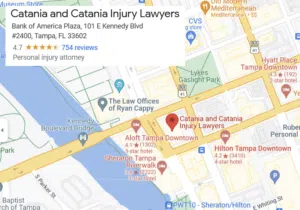
A deposition is the testimony of a witness taken outside of court. The sworn, out-of-court testimony is used to gather additional evidence that a party may use to prove their claims. In some situations, the testimony taken at a deposition may be used during the trial of a case.
Either party may take depositions in a case during the pre-trial discovery process. Many law firms use interrogatories (written questions) to gather information to investigate a case.
However, interrogatories are only sent to the parties to the case. Depositions may be used to obtain sworn testimony from eyewitnesses, expert witnesses, and other parties involved in the case.
Table of Contents
Am I Required to Attend a Deposition?

If you receive a court order requiring your testimony at a deposition, you must attend. Many attorneys subpoena witnesses and parties for a deposition. A subpoena is a written order compelling attendance at a hearing or deposition.
In some cases, you could be subpoenaed by a court in another state. Florida’s Uniform Interstate Depositions and Discovery Act explains the steps a party from another state must take to subpoena a person to attend and give testimony at a deposition.
Do not ignore a subpoena for a deposition. Failing to appear could result in contempt of court charges. Instead, talk with a Tampa personal injury lawyer as soon as possible about the matter.
Who Will Attend My Deposition?
Generally, the people who appear at a deposition include:
- The person being deposed (giving the out-of-court testimony)
- Court reporter
- Attorneys for the parties to the case
- The parties in the case
Some attorneys schedule a videographer to film the deposition. However, most depositions only include an audio recording by the court reporter. The court reporter uses the audio recording to ensure the witness’s testimony is transcribed (reduced to writing) correctly.
What Types of Questions Can I Expect the Attorney to Ask Me During a Deposition?
Each personal injury case is different. Therefore, the questions the attorney may ask depend upon the circumstances of your case. If you are the plaintiff in a personal injury lawsuit, the defendant’s attorney may seek information that would be useful in disputing liability for the accident. In addition, the lawyer may want to obtain information to challenge the severity of your injuries.
Questions you can expect include but are not limited to:
Personal Information
The attorney will ask for your legal name, address, and other personally-identifying information. In addition, the lawyer may ask you about your background, including your education and work history. Questions about your medical history are also common when depositions occur in a personal injury case.
Circumstances Of the Injury
The defendant’s attorney will ask about how you were injured. What happened on the day of the accident? What do you remember about the accident? What were you doing immediately before and at the time of the accident?
The attorney wants to uncover information the defense can use to shift blame for the accident to you. Florida’s pure comparative fault laws decrease your compensation for damages by your percentage of fault for causing the accident.
Current Lifestyle
The defense wants to know how the injury has impacted your life. The impact of the injury affects how much your non-economic damages are worth. Non-economic damages include pain and suffering, emotional distress, and loss of enjoyment of life.
If you claim a permanent impairment, you could be entitled to future lost wages, long-term nursing care, or reduced earning capacity. However, the defendant’s lawyer wants to limit the amount you receive by gathering evidence that the injury did not significantly impact your life.
What Will My Tampa Personal Injury Attorney Do to Prepare Me for the Deposition?
Your attorney cannot answer questions for you at a deposition.
However, there are several ways your lawyer will prepare you for a deposition:
- Your attorney will explain the deposition process and what to expect during the deposition.
- Your attorney may offer tips, such as to answer clearly, not guess or estimate, ask the deposing attorney to repeat questions you do not understand, answer honestly, etc.
- Some lawyers role-play before a deposition by asking standard questions so that you feel more at ease and prepared for the deposition.
Your attorney is in the room with you at all times during the deposition. If you need a break or become upset, notify your attorney immediately. Your lawyer can request a break.
Contact a Tampa Personal Injury Lawyer for a Free Consultation
A Tampa personal injury attorney will fight to get you the money you deserve after an injury or accident. They will protect your best interests throughout the case and provide support, legal advice, and guidance during each step. They will also depose any involved parties to gather evidence for your case and prepare you to give testimony in a deposition if you are subpoenaed.




